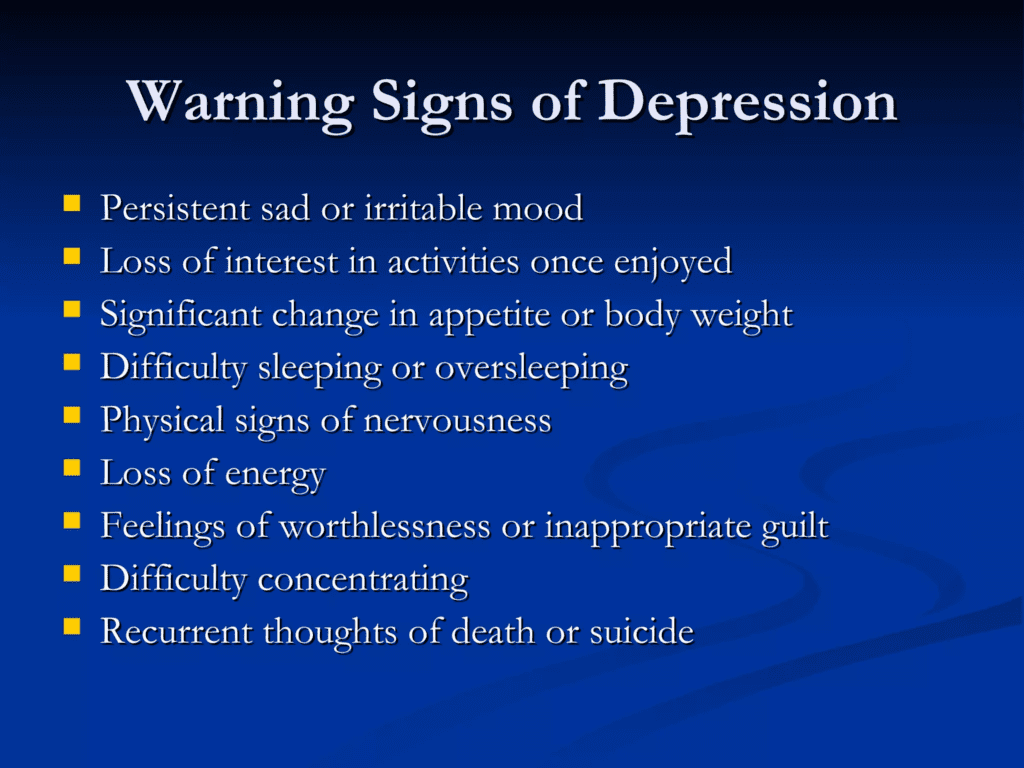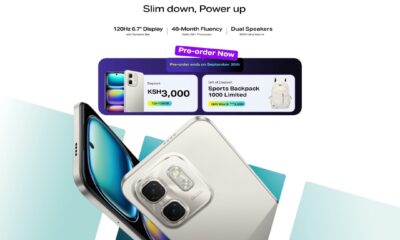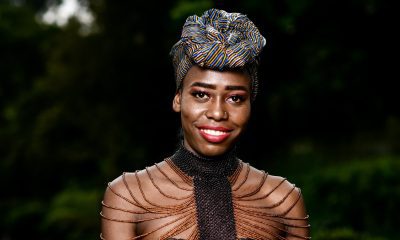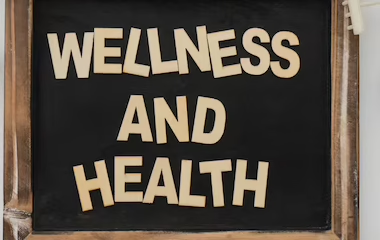Health
Why You Should & How to Find the Most Sought-After Therapist to Become More Positive (Right Now, For Free)
Published
2 years agoon
By
Eric KamauYou might be one of the 1 in 12 [1] people with depression.
Suppose you can confidently tick off 5 out of 9 boxes on the depression checklist below in the past 2 weeks. In that case, you get an unintended qualification for Severe Depression [2]. A therapy session, perhaps?
But would you rather spend on a MacBook or invest in therapy? Do you even know where to find a quality therapist, or would you rather confide in your friend who never reeaaaaally gets you?
Competent therapists have proven invaluable to many, so we cannot afford to discredit their effectiveness. However, what if I told you that this most sought-after therapist isn’t someone you pay? Instead, it’s someone you meet every morning in the mirror: yourself?
You can level up as your own therapist by kicking out negative thoughts that brew self-doubt, hopelessness, guilt, and shame. How?
By inviting in truthful, positive self-talk that boosts confidence, lifts moods, and helps you ninja through life’s hurdles. We’ll call this “misbelief therapy,” where self-talk meets self-care.
Let’s explore why talking to yourself (nicely!) can make you more optimistic about your perception and worldview.

This Is Why You Need Positive Self-Talk
1. Empowerment and Control: Unlike medication, therapy helps you regain control over your mind. By challenging negative thoughts, you reclaim lost control, accessible to anyone willing to try.
2. Improved Mental Health: Focusing on truths and positive affirmations reduces the power of negative thoughts that fuel anxiety and depression, fostering a stable and resilient mental state.
3. Enhanced Relationships: How you chat with yourself sets the tone for your vibe with others. Positive self-talk fosters a healthier self-image, translating into confident interactions with others. It also fosters kindness, both to ourselves and others.
4. Increased Productivity: Believing in your abilities and maintaining a positive outlook enhances motivation and productivity in school, work, or personal projects, focusing on solutions over problems.
5. Lifelong Benefits: Positive self-talk isn’t just for now; it’s the gift that keeps giving. From surviving school stress, nailing that dream job, surviving your wife’s constant nags to living the dream of a peaceful retirement on some ranch, it’s your secret weapon for slaying life’s challenges at every age.

How You Can Harness the Power of Positive Self-Talk
1. Catch Those Negative Thoughts: The first step is to become aware of your negative thoughts. Whenever you catch yourself thinking something negative, stop and take note.
“I’ll never be good at this.”
2. Challenge Your Misbeliefs: Question if negative thoughts are true; often, they’re exaggerated fears or insecurities.
“Really? Never? What about that time I aced that difficult project?”
3. Replace with Positive Self-Talk: Now, flip that negative thought into something positive and more realistic.
“I might struggle now, but with practice, I can improve.”
4. Practice Gratitude: Regularly reflect on what you are thankful for, no matter how small. This practice helps shift your focus from what’s lacking to what’s abundant in your life.
5. Practice Makes Perfect: Like any skill, positive self-talk improves with practice. Set aside daily time to reinforce these habits.
6. Seek Support When Needed: While misbelief therapy is powerful, seek professional help if overwhelmed. Professional guidance complements misbelief therapy efforts.

Conclusion
There you have it; the power to influence your thinking lies in your hands. Use it to turn bad experiences into meaningful lessons, or lose it to make this life full of uncertainties and difficulties more unliveable and demanding.
Telling yourself the truth when you have negative self-talk should be your most important tool. Embrace it to cultivate a sanctuary of peace and clarity in your mind and radiate positivity into this world of imperfections, negativity, bitterness, fear, insecurities, and sin.
You may like


“Zoza”: A Story of Loyalty, Betrayal, and Redemption


Spotify Has Quietly Hiked Prices in Kenya


A Journey of Self-Discovery: Book Review of Educated by Tara Westover


Packed Fall 2024 Anime Lineup: What to Expect This Season


Infinix’s Hot Launch; The All New Hot 50 Series is Here


Walker Town Presents A Star-Studded Lineup Featuring Lauryn Hill, Nyashinski And Rema
A Chat With
Suicide Prevention Through Relatable Conversations
Published
1 year agoon
September 17, 2024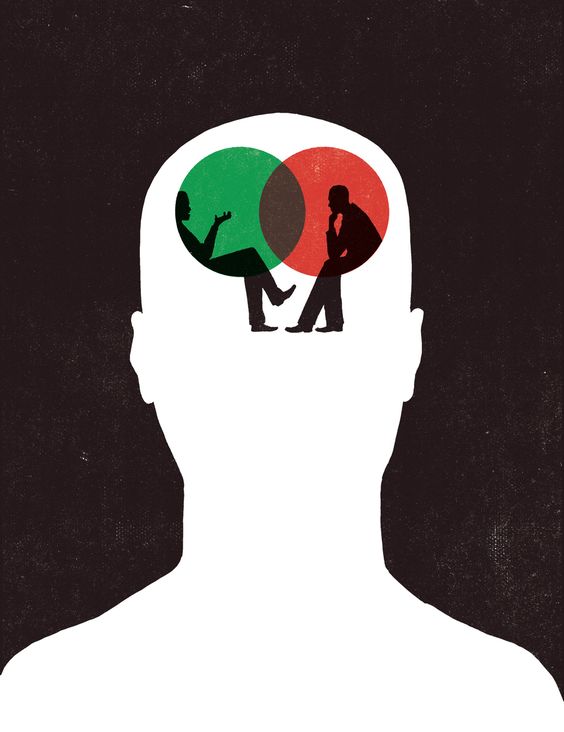
We live in a digital world where, mental health struggles are often hidden beneath the polished veneers of social media profiles, carefully curated to present a perfect life. As we observe World Suicide Prevention Month this September, we must acknowledge that the reality is far different for many. Economic stress, unresolved childhood traumas, and the pressures of daily life weigh heavily on individuals, particularly us the youth.

Fidelis Gakuhi, a mental health activist, published author, and poet, is no stranger to these struggles. Having once battled her own mental health challenges, she is on a mission to remind people that they are doing fine, even when life feels overwhelming.
“I’ve been there,” Fidelis emphasizes. “I once tried to end my life, but someone came through for me. That’s why I believe in paying it forward. This generation carries so much weight from their past, and they need constant reminders that they’re doing okay.”
The Double-Edged Sword of Social Media
It’s impossible to talk about today’s mental health landscape without addressing social media. For many, it serves as a double-edged sword. While it can connect people to stories that inspire and provide a sense of community, it also adds to the pressure, creating unrealistic standards of success, beauty, and happiness.
Fidelis offers a grounded perspective on this: “Social media doesn’t always mirror real life. Gen Zs should learn to manage what they keep and what they discard. The pressure isn’t always healthy.” She acknowledges the positive aspects too, noting how social media can offer relatable stories depending on what one chooses to consume.
Engaging in Conversations: Breaking the Silence
For Fidelis, creating awareness around mental health doesn’t stop at social media posts. She actively engages people in WhatsApp groups and through her statuses, sparking conversations that allow people to feel valued and heard. “Once you ask for their opinion, they feel appreciated, and that’s when they start sharing their experiences. We then try to find solutions together, and when I can’t help directly, I recommend they seek professional help.”
However, Fidelis doesn’t shy away from the challenges that come with mental health advocacy. “It’s heartbreaking when someone reaches out but isn’t willing to put in the work to heal. It’s even more painful when they constantly post suicidal thoughts on social media, yet you can’t reach them,” she notes.
Despite the difficulties, Fidelis always leaves a message of encouragement, reminding those struggling that things can get better. She believes in giving her all and accepting that sometimes, no matter how hard we try, things may not turn out as expected—and that’s okay.
When talking about friendships, Fidelis draws inspiration from Aristotle’s philosophy on friendship which highlights that true friends should enjoy each other’s company and be useful to one another. She applies this theory to her mental health advocacy.
“You should always want the best for your friends. If they reach out, don’t just be an enabler. Lead them towards better solutions without invalidating their feelings,” she urges. This mindset is crucial when dealing with mental health issues within personal circles, as it can at times be a of life-or-death situation.
Fidelis also acknowledges that society still has a long way to go in understanding mental health. “It’s not easy. People are still afraid to engage with the issue. Many still believe that mental illness is more of a spiritual problem than a real illness,” she says. This misconception makes it harder to create a safe pace for recovery.
Nevertheless, she remains hopeful and committed by continuously finding ways to create awareness. She advises that people should look up for agencies like NACADAke that also engage in extensive talks on mental health, especially during this month when the world is spreading awareness on suicide prevention.
In her own social circles, Fidelis has taken steps to make mental health a topic of open discussion. “My friends saw me struggle with mental health issues, and I knew I had to create awareness for them to feel comfortable with it. I even wrote a book, and they were so supportive that I never felt isolated. They’re very open-minded and don’t find the subject heavy,” she says. This openness has allowed her to foster deeper conversations with people who relate to her experiences.
Fidelis believes in the power of conversation and reminds us that everyone has something to offer. “No one is too poor to give. You can play your part by offering advice or referring someone to a specialist. You never know who’s listening or watching.”
In a world that often shies away from discussing mental health, Fidelis urges us to step up and start these conversations. As she reminds us, ignorance is not bliss when it comes to topics on mental health and suicide cases. The time to act is now. If someone is struggling, reach out, offer support, and don’t be afraid to refer them to professionals who can help. It’s about saving lives, one conversation at a time.
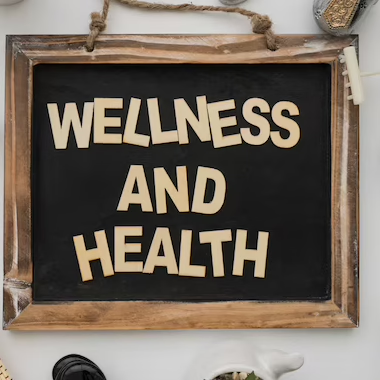
What if I told you there was a way for you to switch it all up—mind, body, and spirit—without getting too woo-woo? Yup, do you know about holistic health, syncing your mental, physical, and emotional well-being? Sounds like a vibe, right? Hear me out.
1. Mind: Your Mental Playground
Your mind is like a garden—what you plant is what grows. If you’re feeding it negative thoughts and stress, don’t be surprised when you’re feeling down and stressed or find yourself at your local. It’s time to flip the script.
Start small: daily affirmations, a quick meditation sesh, or even journaling out your feelings. Keep that mental energy high, and watch how it changes your game.
2. Body: The Real MVP (Most Valuable Player)
You know the drill—your body is your temple, but are you really treating it like one? Holistic health isn’t just about hitting the gym; it’s about moving your body in ways that feel good to you.

Whether it’s yoga, dance, or just a walk in the park, get that body moving. And let’s not sleep on the fuel—eat whole foods that nourish you from the inside out. Your body’s your ride through life; give it the premium gas it deserves.
3. Spirit: The Vibe Setter
Now, this might be where some of y’all get sceptical, but stick with me. Your spirit is your inner vibe, the energy that keeps you grounded. It’s about finding what centers you—maybe it’s a spiritual practice, or just spending time in nature. Whatever fills your cup, do more of that.
Your spirit’s compass guides you to a life that feels right, not just looks right.
4. The Power of Balance
Holistic health is all about balance. When your mind, body, and spirit are aligned, you’re unstoppable. It’s not about being perfect—it’s about being aware and making choices that keep you in sync. Life’s gonna throw you off balance sometimes, but when you know how to realign, you’ll always find your way back.
So, there you have it—holistic health in a nutshell. It’s not some out-there concept; it’s about living a life where all parts of you thrive together. Start with one small change today, and let’s get that mind, body, and spirit in harmony. You got this!
Health
Fuel Your Future with Healthy Eating Habits in Your 20s
Published
1 year agoon
September 10, 2024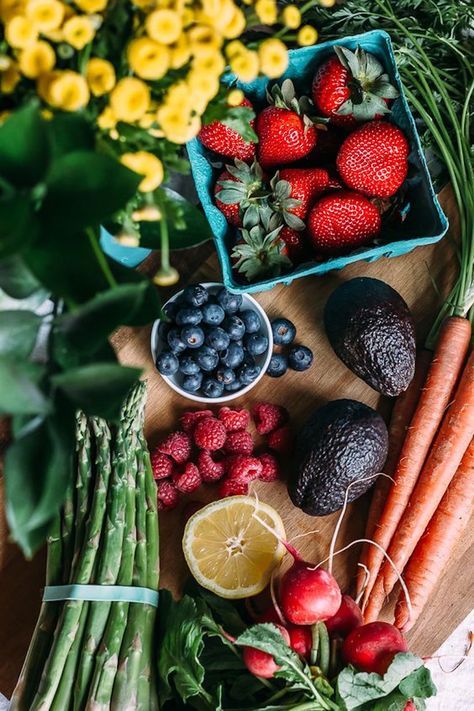
Your 20s are an exciting time of exploration, growth, and establishing habits that will last a lifetime. Among these, developing healthy eating habits is crucial and therefore should be intentional. What you eat now lays the foundation for your future health and well-being. Whether you’ll be those guys who retire at 60 or those whose lives start at 60. Here’s a guide to help you navigate the world of nutrition and make smart choices that will fuel your body and mind.
1. Prioritise Whole Foods
First and foremost, aim to prioritise whole foods. These include fruits, vegetables, whole grains, lean proteins, and healthy fats. Whole foods are packed with nutrients that are essential for your body. They help you feel full longer and provide sustained energy. Think of meals that are colourful and varied – the more colours on your plate, the more nutrients you’re likely getting.
2. Stay Hydrated
Hydration is often overlooked but is vital for maintaining overall health. Drinking enough water supports your metabolism, aids in digestion, and keeps your skin looking fresh. Aim for at least 8 glasses of water a day. If plain water isn’t your thing, try infusing it with fruits like lemon or berries for a flavour boost.
3. Balance Your Macronutrients
A balanced diet includes the right proportions of carbohydrates, proteins, and fats. Carbohydrates are your body’s main source of energy, so opt for complex carbs like brown rice, and oats. Proteins are crucial for muscle repair and growth; sources include chicken, fish and beans. Healthy fats, found in avocados, nuts, and olive oil, are essential for brain health and hormone production.
4. Don’t Skip Breakfast
Breakfast is often touted as the most important meal of the day, and for good reason. Eating a nutritious breakfast kickstarts your metabolism and provides energy for the day ahead. Choose balanced meals like oatmeal with fruits and nuts, whole-grain toast with avocado, or a smoothie packed with greens, fruits, and a protein source.
5. Practice Portion Control
In your 20s, it’s easy to get carried away with large portions, especially when eating out. Practising portion control helps prevent overeating and maintains a healthy weight. Try using smaller plates, serving yourself reasonable portions, and listening to your body’s hunger cues. Remember, it’s okay to leave food on your plate if you’re full.
6. Limit Processed Foods
Processed foods are often high in unhealthy fats, sugars, and sodium. They can contribute to weight gain, poor energy levels, and long-term health issues. While it’s okay to enjoy these foods occasionally, try to limit your intake. Focus on fresh, natural foods that nourish your body.
7. Snack Smart
Snacking can be part of a healthy diet if done correctly. Choose snacks that provide nutrients rather than empty calories. Great options include nuts, yoghurt, fruit, and vegetables. These snacks help maintain your energy levels and keep you satisfied between meals.
8. Cook at Home
Cooking at home gives you control over what you eat and how it’s prepared. It’s often healthier and more cost-effective than eating out. Start with simple recipes and gradually experiment with new ingredients and cooking methods. Home-cooked meals can be both nutritious and delicious.
9. Be Mindful of Alcohol Intake
Yap! While enjoying the occasional drink is fine, being mindful of your alcohol intake is crucial. Alcoholic beverages can be high in empty calories and can affect your metabolism. Try to limit your consumption and opt for lower-calorie options when you do indulge, the goal is to have fun, not ruin the future.
10. Plan and Prep Meals
Meal planning and prepping can save you time and ensure you have healthy options available. Spend a little time each week planning your meals and preparing ingredients. This helps you avoid the temptation of unhealthy fast food and makes it easier to stick to your nutrition goals.
11. Listen to Your Body
Finally, listen to your body’s signals. Eat when you’re hungry, and stop when you’re full. Pay attention to how different foods make you feel. Your body knows what it needs, and tuning into those signals can help you make better dietary choices.
Adopting healthy eating habits in your 20s sets the stage for a vibrant and healthy future. Prioritising whole foods, staying hydrated, balancing macronutrients, and being mindful of your portions and choices are key steps. By making these habits a part of your routine, you’re investing in your long-term health and well-being. So, start today and fuel your future with the best nutrition possible.

Meghan Markle Delays Netflix Series Premiere Due To LA Wildfires

Satire Meets Culture On New Comedy Series ‘A Very Kenyan Sketch Show’

Netflix Set To Debut A Gripping Kenyan Drama Series ‘Mo-Faya’
Trending

 Adulting 1013 years ago
Adulting 1013 years agoPersonal Brand Online (Part 2)

 Adulting 1013 years ago
Adulting 1013 years agoPersonal Branding (Part 1)

 A Chat With3 years ago
A Chat With3 years agoA chat with DJ Elye (the sunday skool drop out)

 A Chat With5 years ago
A Chat With5 years agoA MOMENT WITH SHARON WENDO, FOUNDER OF EPICA JEWELLERY

 Health1 year ago
Health1 year agoLet’s Get Mind, Body and Spirit Aligned!

 Adulting 1012 years ago
Adulting 1012 years agoRediscovering Yourself Through Solo Travel: The Mental Health Benefits of Venturing Alone

 Entertainment3 years ago
Entertainment3 years agoKenyan Movie Disconnect: The Wedding Planner Is Now Streaming On Netflix

 A Chat With3 years ago
A Chat With3 years agoFind out why ‘mutura is not a street food’ as Wanjira Puts it!

